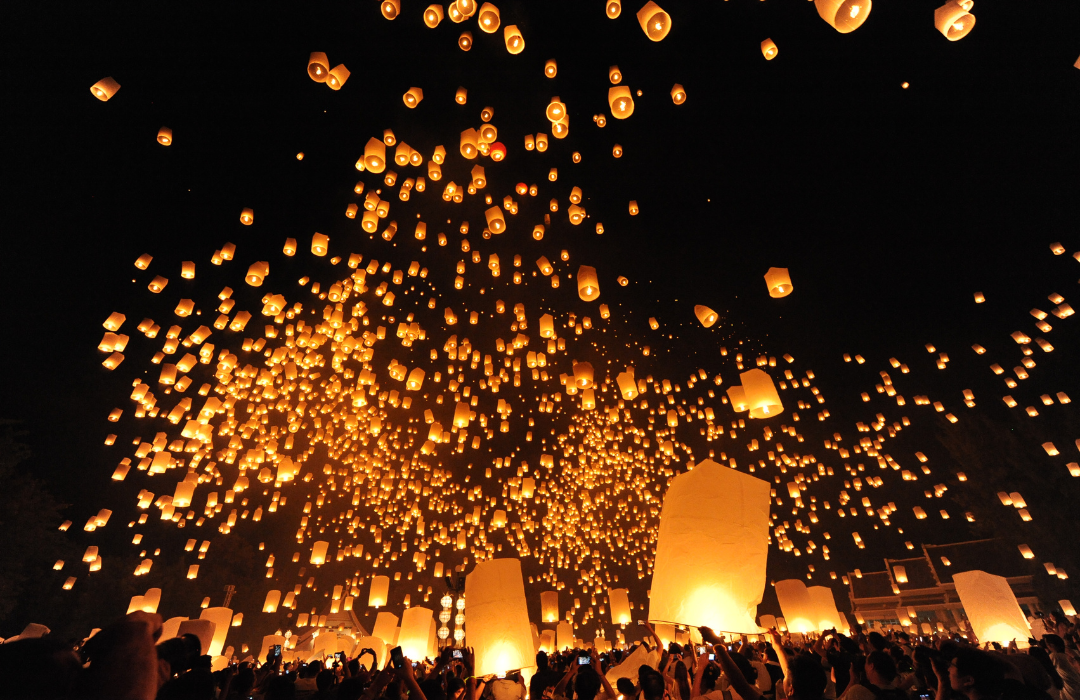Change is a natural part of life, yet navigating times of transition can be a daunting, emotional experience. The importance of ceremonies in acknowledging both endings and new beginnings cannot be overstated. Ceremonies are an interlude, a space where endings harmonize with new beginnings, These rituals provide a sense of closure, a way to honor the past, and a gateway to embrace the future and the new opportunities it brings with open arms.
Let’s delve into the significance of ceremonies in various aspects of life, from personal milestones to corporate transformations, and explore the profound role of community support in shepherding in times of change.
Defining Ceremony: More Than Tradition
At first glance, a ceremony might seem like a simple tradition, but it’s much more than that. Oxford and Cambridge define it as a formal act performed on significant occasions, but this definition merely scratches the surface. A ceremony is a bridge, a powerful way of connecting the old with the new. It’s a structured way to mark moments of change with meaning and significance.
What does research say about the Role of Rituals and Ceremonies?
Renowned Harvard Business School professor Mike Norton asserts rituals play crucial roles in different aspects of life. They help individuals cope with loss, strengthen familial bonds, and fortify commitments. Whether it’s a wedding, funeral, graduation, or any other significant event, rituals have symbolic meaning. They serve as markers of transition, signifying the end of one phase and the beginning of another.
Research published in “Ritual explained: interdisciplinary answers to Tinbergen’s four questions” by Cristine H. Legare and Mark Nielsen explores the psychological and social functions of rituals. They found rituals empower individuals to take control in times of uncertainty. The Indian birth ritual, Chhathi, is a great example. This ancient ritual lends courage to new parents, helping them embrace their roles while soothing the strains of anxiety that often accompany the unknown of their new journey as parents.
Research clearly outlines that ceremonies and rituals deepen relationships and ease anxiety around change and transition.
Ceremonies in the Business World
Change- and ceremony- isn’t limited to personal life; it also has a presence corporate realm. Consider my newest idea, corporate funerals. This practice would allow companies to consciously bid farewell to old strategies, business models, and approaches to make way for innovation and progress. Formally honoring the past while embracing a new era creates a smoother transitional time where the old guard feels appreciated, witnessed, and willing to share the wisdom necessary for the new guard to take up the helm. Formal and signified transitions make shifting to the new ways a handshake instead of a punch.
The Natural Essence of Ceremony
In many ways, ceremonies mirror the cycles of nature. Just as compost enriches the soil for new life by breaking down the old, ceremonies provide a structured format for acknowledging the past and making space for the future. Similar to how the earth, water, fire, and air all play essential roles in the natural world, ceremonies provide the elements necessary for processing grief, change, and growth.
Composting takes what is no longer fruitful on its own and transforms it into a perfect environment for new growth. Similarly, ceremonies take what we may want to ignore—the endings, the losses, the uncertainties—and turn them into a fresh start. Just as compost enriches the soil, allowing plants to flourish, ceremonies enrich our souls, allowing us to embrace new beginnings with a deeper understanding of the past.
Embracing ceremony aligns us with the natural rhythm of life, where change is not something to be feared but rather a part of an intricate cycle every living thing experiences. Life, death, and rebirth are not isolated events; they are interconnected chapters in the story of existence. Just as a tree sheds its leaves in autumn, only to sprout new ones in the spring, our lives transition too through various seasons. Ceremonies remind us change is not an interruption but a continuation of this cycle, a cycle that, when acknowledged, enriches our understanding of ourselves and the world around us.
The Crucial Role of Community Support
A fundamental aspect of transitioning through ceremonies is the support of a community as this support helps you move from one phase to another. In times of loss or change, a community’s presence can give you solace and strength so you have the support and space to mourn and eventually heal.Strong community support is the heart of transition ceremonies. It transforms these rituals from a simple marker of change into powerful conduits for healing, growth, and connection. Whether through shared sorrow or collective celebration, the presence of a supportive community ensures no one walks through change alone.
Whether it’s lighting candles, sharing stories, or offering prayers, rituals offer a framework for collective expression. In times of transition, these shared actions create a sense of unity, reminding a group their experiences are interconnected. The very act of participating in these meaningful rituals with others can help alleviate the weight of grief and uncertainty, making the journey through transition less lonely.
Life’s transitions, whether joyful or challenging, are better navigated with the presence and support of a community. The concept of community goes beyond a group of people; it embodies a network of shared experiences, emotions, and connections. In the realm of ceremonies marking endings and new beginnings, community support plays an indispensable role in emotional processing, fostering resilience, and promoting healing.
During times of loss and farewells, grief can be overwhelming and isolating. This is where the warmth and solidarity of a community come into play. Ceremonies provide an occasion for friends, family members, and even acquaintances to gather and provide a network of empathy and understanding. The shared experience of grief within the community not only validates individual feelings but also encourages mourners to acknowledge they are not alone in their pain. The collective mourning process becomes a form of emotional sustenance, creating an environment where people feel safe to express their emotions authentically.
Transitions often test the strength of relationships. Weddings, funerals, graduations—these events bring people together and reaffirm the bonds tying them together. Community support doesn’t just offer comfort; it provides an opportunity for connections to deepen. Through shared stories, laughter, and tears, each person becomes more attuned to each other’s experiences. These connections not only bring comfort during the transitional period but also in the following days and years.
When individuals are faced with a new beginning, such as a wedding or the birth of a child, the support of a community acts as a guiding force. The wisdom and experiences shared by others provide a roadmap for the journey ahead. New parents can learn from seasoned ones, newlyweds can gain insights from those with enduring marriages, and graduates can draw inspiration from those who have walked similar paths. The presence of a supportive community imparts a sense of belonging and readiness for the road ahead.
Celebrations marking new beginnings are made even more meaningful when shared with a community. The joy of achieving a milestone, whether personal growth or professional is amplified when that happiness is shared with kindred spirits- friends, family, and colleagues. This shared celebration acknowledges everyone’s journey does not occur in isolation but as part of a broader world community.
The Price of Ignoring Change
Choosing not to acknowledge change comes at a cost. Grief is a natural process and will find its way to the surface, whether acknowledged or not. Ceremony nurtures new growth by allowing the natural cycle of life, death, and rebirth to unfold. Change is the thread that weaves every chapter of life together. Yet, we can so easily overlook the power it wields and the consequences of turning a blind eye to its existence. Choosing not to acknowledge change might seem like a simple act of avoidance, but beneath the surface lies a complex interplay of emotions, suppressed truths, and uncharted territories. This emotional evasion often comes at a cost—one that stretches far beyond the immediate moment.
Grief, the profound emotion born from loss and transformation, is a natural response to changes rippling through our lives. It’s an emotion that refuses to be buried or ignored, growing louder until we acknowledge it. Ignoring change doesn’t make it disappear; rather, it bottles up unspoken emotions and lets them fester. Just like the currents beneath the ocean’s surface influence the tides that reach shore, ignoring grief can begin to unconsciously shape the course of our emotions and actions.
Grief will find a way to the surface. It might seep through our dreams, color our interactions unconsciously, or manifest itself in physical discomfort. It’s the lingering emotional pain of unacknowledged change, a silent reminder life’s shifts cannot be suppressed forever.
Acknowledging change through ceremony is a conscious choice you can make to work through the grief of change. You can create a sacred space to welcome a new chapter or the end of something that has meant a great deal to you through your own personal rituals. It doesn’t have to be formal or complex or even take much time because a ceremony is simply an intentional moment when you embrace life’s ebbs and flows, endings and beginnings, and the joys and sorrows of your life journey. Instead of using your precious energy to ignore or deny the natural order of change, I encourage you to embrace the transformational power of ceremony so you can allow the natural cycle of life, death, and rebirth (and all the gifts and beautiful things that come with it) to unfold.
Embrace the Power of Ceremony
You can navigate life’s transitions with new intentions by choosing to mark moments of change with ritual and ceremony, With each ceremony you give yourself the closure needed to transform endings into new possibilities.

